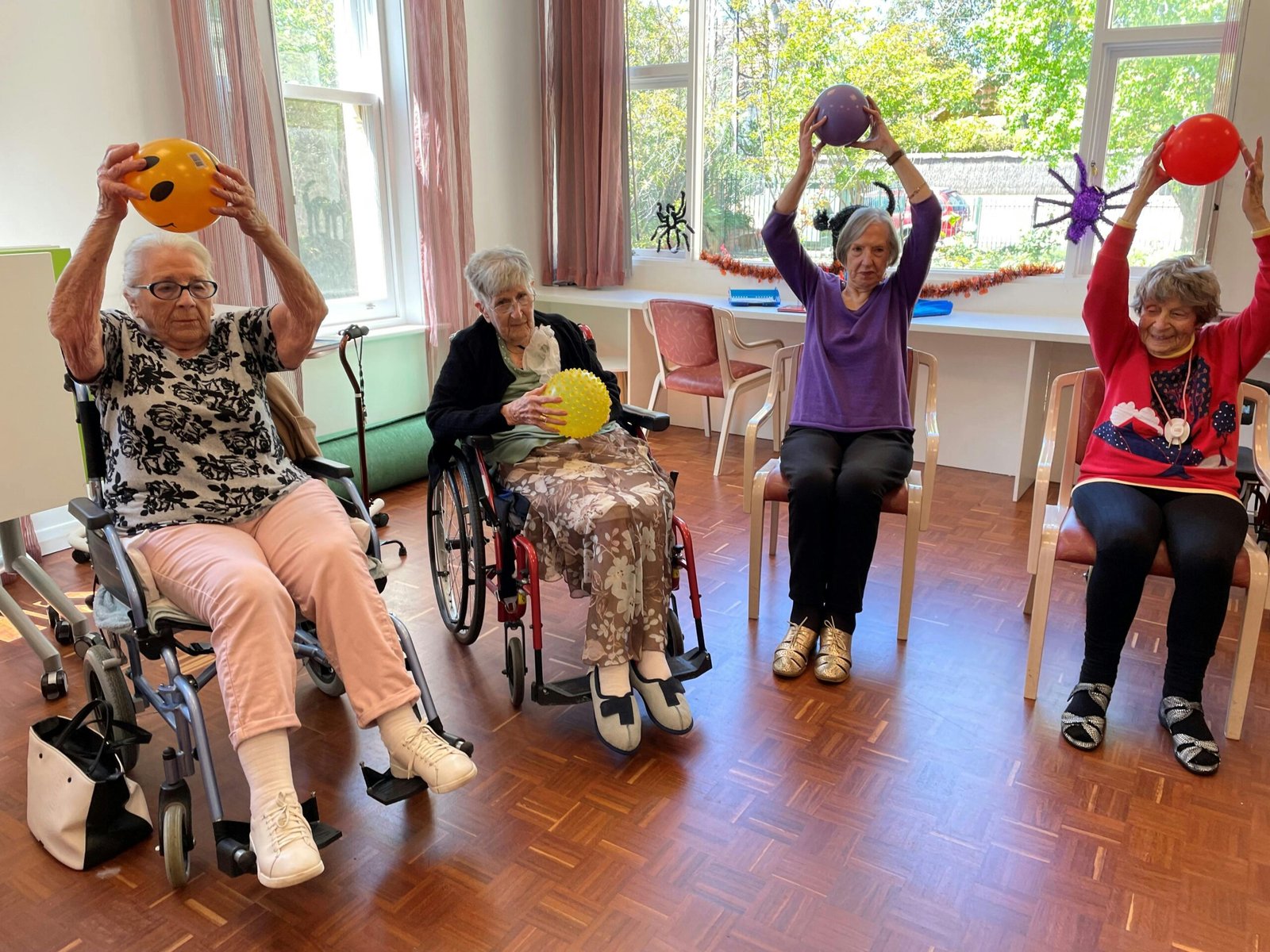For Personalized Live in Care Guidance
How Much Does Respite Care Cost? Understanding Your Options For Care
Taking care of a loved one can be both rewarding and challenging. When caregivers need a well-deserved break, respite care provides essential relief. However, many families worry about the financial implications of this service. In this comprehensive guide, we’ll explore the costs associated with respite care, funding options, and how Tier One Care can provide affordable, high-quality respite services.
Understanding Respite Care
Respite care offers temporary relief for primary caregivers, allowing them to rest, attend to personal matters, or simply recharge while ensuring their loved one receives proper care. This vital service can be delivered in various settings and durations, from a few hours to several weeks, providing flexibility for families managing long-term caregiving responsibilities.
What Is Respite Care?

Respite care is designed to give primary caregivers a temporary break from their caregiving duties. This service can be particularly valuable for those caring for individuals with chronic illnesses, disabilities, or age-related conditions. The primary goal is to prevent caregiver burnout while maintaining the quality of care for the person in need.
Types of Respite Care Services
Different types of respite care are available to suit various needs and preferences:
-
In-home respite care: Professional caregivers provide services in the comfort of your loved one's home, allowing them to maintain their routine in familiar surroundings.
-
Day centres: These facilities offer care during daytime hours, providing social activities and necessary support services.
-
Residential respite care: Short-term stays in care homes or nursing facilities, offering round-the-clock support.
- Live-in respite care: A professional caregiver lives in your home for a specified period, providing continuous support.
Respite Care Costs Breakdown
The cost of respite care varies significantly depending on several factors, including the type of care, duration, location, and level of support required.
In-Home Respite Care Costs
In-home respite care allows your loved one to remain in familiar surroundings while receiving professional support:
- Hourly rates: Typically range from £18 to £30 per hour in the UK, with higher rates in London and other metropolitan areas.
- Half-day care: For 4-6 hours of care, expect to pay between £75 and £180.
- Full-day care: For 8-12 hours, costs generally range from £150 to £300.
- Overnight care: Prices typically range from £120 to £200 per night.
Residential Respite Care Costs
For short-term stays in care facilities:
- Daily rates: Average costs range from £85 to £180 per day.
- Weekly rates: Expect to pay between £600 and £1,200 per week.
- Specialised care: For individuals with complex needs such as dementia or advanced medical conditions, costs may increase by 20-40%.
Day Centre Respite Costs
Community-based day centres offer a cost-effective respite option:
- Half-day sessions: Typically £30 to £60.
- Full-day sessions: Usually £50 to £100, often including meals and activities.
- Weekly packages: Some centres offer discounted rates for regular attendance.
Live-In Respite Care Costs
For comprehensive round-the-clock support:
- Daily rates: Generally between £150 and £250 per day.
- Weekly rates: Expect to pay £1,000 to £1,700 per week.
- Specialised live-in care: For complex needs, rates may increase to £1,300 to £2,000 per week.
The Value of Regular Respite Care
Investing in regular respite care offers significant benefits beyond the immediate break:
For Caregivers
- Reduced stress and burnout: Regular breaks help prevent caregiver fatigue and associated health problems.
- Improved physical and mental health: Time for self-care contributes to overall wellbeing.
- Maintained personal identity: Opportunities to pursue interests and maintain social connections outside of caregiving.
- Enhanced caregiving quality: Refreshed caregivers typically provide better care.
For Care Recipients
- Expanded social interactions: Meeting new caregivers broadens social experiences.
- Maintained independence: Professional caregivers often encourage appropriate levels of independence.
- Consistent care quality: When primary caregivers are rested, the overall quality of care improves.
Factors Affecting Respite Care Costs
Several key factors influence the cost of respite care services:
Location
Geographical location significantly impacts respite care costs. Urban areas and regions with higher costs of living generally have higher respite care rates. For example, services in London may cost 20-30% more than in other parts of the UK.
Level of Care Required
The complexity of care needs directly affects pricing:
- Basic assistance: Help with daily activities like meal preparation and companionship is typically less expensive.
- Personal care: Services including bathing, dressing, and toileting command higher rates.
- Specialised care: Support for conditions like dementia, Parkinson’s disease, or complex medical needs often requires specially trained caregivers and commands premium rates.
Duration of Care
The length of respite care services can affect the overall cost:
- Short-term respite: Brief periods may have higher hourly or daily rates.
- Regular scheduled respite: Ongoing arrangements often come with discounted rates.
- Extended respite periods: Longer stays may qualify for reduced daily rates.
Caregiver Qualifications
The training and experience of caregivers influence pricing:
- Basic caregivers: Those with standard training typically charge lower rates.
- Experienced caregivers: Professionals with several years of experience command higher rates.
- Specialised caregivers: Those with nursing qualifications or specialised training in conditions like dementia care typically charge premium rates.
The Tier One Care Advantage: We Won't Be Beaten on Price
At Tier One Care, we understand that respite care is essential, not a luxury. That’s why we’re committed to providing high-quality, affordable respite care services with our “We Won’t Be Beaten on Price” guarantee.
Our Respite Care Services
Tier One Care offers flexible respite care options to suit your family’s needs:
- Hourly respite care: Professional caregivers provide support for a few hours, allowing primary carers to run errands, attend appointments, or simply take a break.
- Overnight respite care: Experienced caregivers stay overnight, ensuring your loved one receives proper care while you get a full night's rest.
- Live-in respite care: For extended breaks, our live-in caregivers provide comprehensive support in your loved one's home.
- Specialised respite care: We offer expert care for individuals with specific conditions, including dementia, Parkinson's disease, and other complex needs.
The Quality Difference
While we pride ourselves on affordable pricing, we never compromise on quality:
- Highly trained caregivers: All our respite care professionals undergo rigorous training and background checks.
- Person-centred approach: We tailor our services to meet the unique needs and preferences of each client.
- Continuity of care: We strive to maintain your loved one's routine and preferences during respite periods.
- Comprehensive support: From personal care to medication management, meal preparation, and companionship, we provide holistic care.
Funding Options for Respite Care
Many families worry about covering respite care costs. Fortunately, several funding options exist:

Local Authority Funding
Local councils may provide financial assistance for respite care following a care needs assessment and financial assessment. The amount of support varies based on:
- The assessed needs of the person requiring care
- The financial situation of the individual (means testing)
- Local authority budgets and policies
NHS Continuing Healthcare
For individuals with significant health needs, NHS Continuing Healthcare may fund respite care as part of a comprehensive care package. Eligibility is based on having a “primary health need” rather than financial circumstances.




Carer’s Allowance and Benefits
Carers may be eligible for specific benefits that can help offset the costs of arranging respite care:
- Carer’s Allowance: A weekly benefit for those providing at least 35 hours of care per week.
- Carer’s Credit: Helps protect your State Pension if caring responsibilities affect your ability to work.
- Attendance Allowance: For those over 65 with care needs, which can be used toward respite services.
Charitable Support
Various charities and organisations offer grants or subsidised respite care services:
- Carers Trust: Provides grants and support for carers.
- Turn2us: Helps people find charitable grants for various needs, including respite care.
- Age UK: Offers information, advice, and sometimes financial support for older adults and their carers.
Hear What Our Clients Says
Frequently Asked Questions
How long can respite care last?
Respite care can range from a few hours to several weeks, depending on your needs. At Tier One Care, we offer flexible options to accommodate both short breaks and extended periods. Most residential respite stays typically don’t exceed 4-6 weeks per session, though you can arrange multiple sessions throughout the year.
Can I get financial help for respite care?
Yes, financial assistance may be available through local authority funding, NHS Continuing Healthcare (for those with primary health needs), benefits like Carer’s Allowance, and charitable grants. Our team at Tier One Care can provide guidance on exploring these options and maximising available support.
How do I choose the right respite care provider?
When selecting a respite care provider, consider:
- Their experience and specialisations
- Caregiver qualifications and training
- Flexibility in service provision
- Pricing structure and transparency
- Reviews and testimonials from other families
How far in advance should I book respite care?
For planned breaks, we recommend booking 2-4 weeks in advance. During peak periods like holidays, 1-3 months’ notice is ideal to secure your preferred caregiver and schedule. However, we understand that emergencies arise, and we strive to accommodate urgent respite care needs whenever possible.
Understanding respite care costs is essential for effective planning and ensuring both caregivers and care recipients receive the support they need. While prices vary based on location, type of care, and duration, the investment in respite care often pays dividends in improved caregiver wellbeing and sustained quality of care.
Making the Right Choice for Your Care Needs
At Tier One Care, we’re committed to making respite care accessible and affordable with our “We Won’t Be Beaten on Price” guarantee. We believe that every caregiver deserves a break, and every care recipient deserves high-quality support during those breaks.

Contact Us
Phone: 0808 5012888
Email: support@tieronecare.co.uk
Head office
182-184 High Street North
East Ham
London
E6 2JA
Information
About Us
Careers
Blog
Legal
Privacy Policy
Cookie Policy
Terms & Condition




